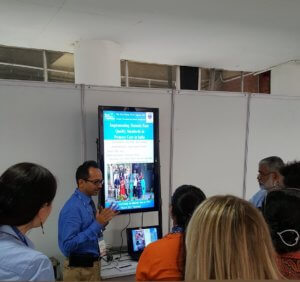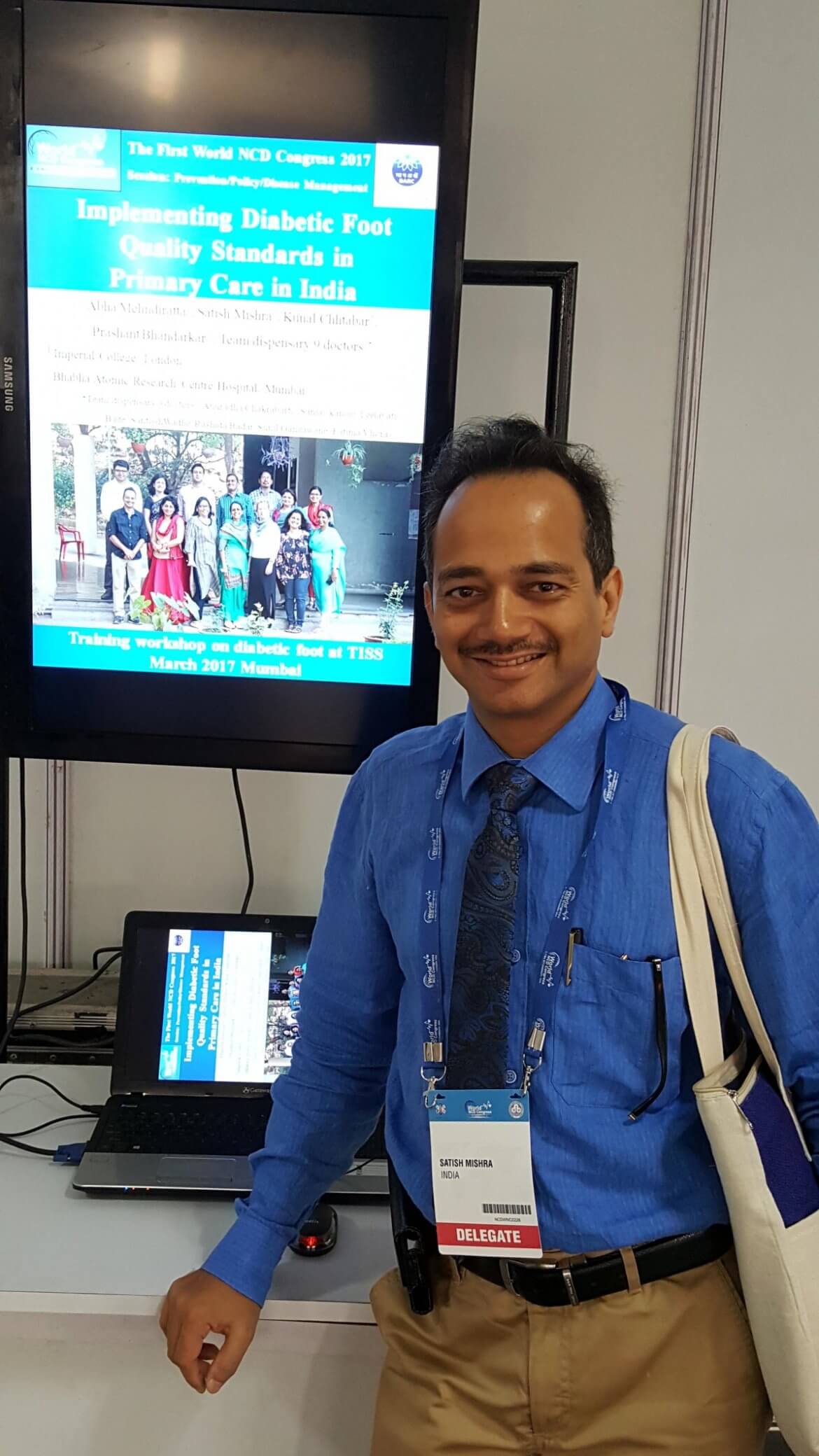The implementation of diabetic foot quality standards (QS) within primary care in Mumbai, supported by iDSI, has resulted in the identification of patients at risk of neuropathy who may have otherwise gone undetected.

Dr Satish Mishra at the first world congress on non-communicable diseases event in Chandigarh, India last month.
Between April-October 2017 842 diabetes patients that attended Dispensary 9 at the Bhabha Atomic Research Centre had their feet examined once by physicians that had received additional training from Imperial College London, comprising planning and data analysis.
Neuropathy, which can occur in diabetes patients following prolonged exposure to high blood sugar which can damage delicate nerve fibers, was found in 9% of the patients. Peripheral arterial disease, which occurs when a build-up of fatty deposits in the arteries restricts blood supply to leg muscles, was found in 0.5%.
Previously, not all diabetic patients were receiving foot examinations as part of the standard treatment pathway. The diabetic foot project aimed to use QS to achieve measurable indicators of healthcare improvement. The key process measure for the project was the cumulative sum of patients with diabetes receiving foot examination; and the key outcome measure was the percentage of patients screened for neuropathy and peripheral artery disease.
The pilot project met its objective and provides important evidence to show that diabetic foot care can improve by training healthcare providers, standardising processes, regular data review and feedback. Lessons learned on how to integrate diabetic foot care in a high-volume primary care clinic has relevance for India and other populous south Asian countries.
The findings were presented by principal investigator Dr Satish Mishra at the first world congress on non-communicable diseases event in Chandigarh, India last month.
Visit the National Health Mission’s website to read how the QS were developed from the recommendations in the standard treatment guideline on diabetic foot. Details of the planning and implementation of the project are on the poster presented at the first world congress on non-communicable diseases.
